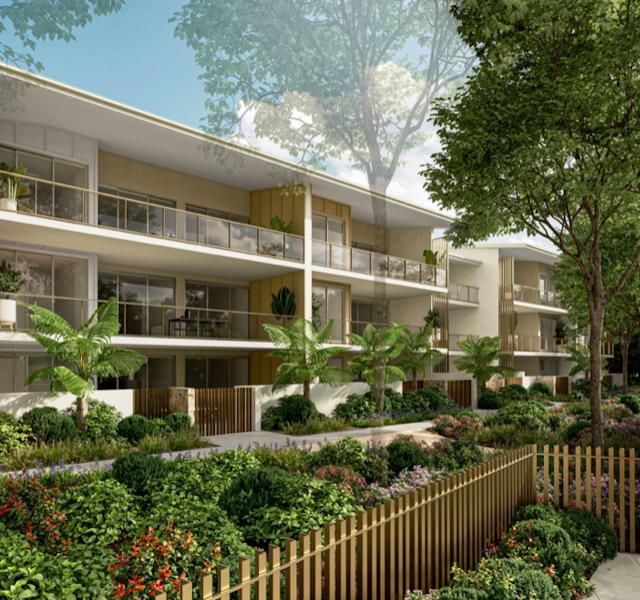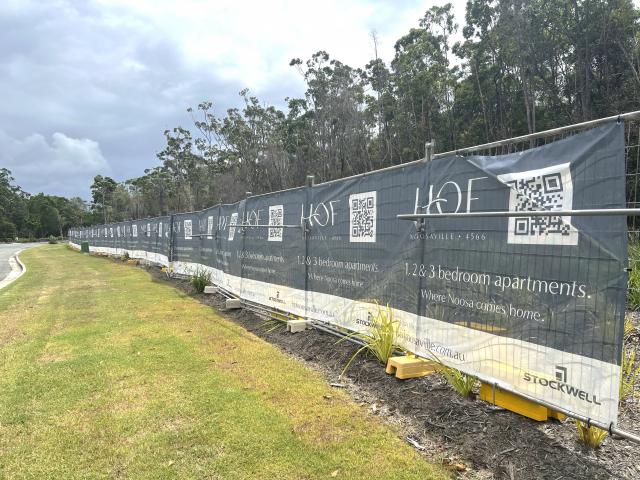Noosa’s newest residential complex, Hof Noosaville, due to be completed next year and touted as “where Noosa comes home”, will offer little comfort for buyers wishing to charge their electric vehicles.
The 90 apartments spread over three buildings just a screen of trees away from Noosa Civic shopping centre and the new Noosa Shire business centre will have 125 underground car parks but no EV charging stations adjacent to them or even standard power points for slow charging.
According to Maddy Stockwell, marketing manager for Stockwell Developments, there is to be one charging station on the property, situated within the visitor parking area.
Noosa businessman and future Hof resident Mark Dowling, who placed a deposit on an apartment last year, is not happy about the situation, telling Noosa Today: “With one charging facility for 125 vehicles, if we take turns, each resident can drive his or her EV once every three months.”
Of course not every resident is likely to own an EV in the foreseeable future, but in line with global trends, one-third or even half of them is likely to within the next decade.
Mr Dowling continued: “Every vehicle manufacturer has announced plans to phase out ICE-powered vehicles, and the federal and state governments already provide significant concessions to bolster the uptake of EVs. EVs are not a future trend, they are happening now.
“Given Noosa’s biosphere status, it is bizarre that new developments here continue to be approved that do not consider EV uptake. It is simple to do, yet makes our biosphere status somewhat questionable when EVs continue to be a non-option for new builds in the shire.”
Noosa Council approved the development application of Hof Noosaville with only one dissent last year.
That dissenter, Cr Tom Wegener, told Noosa Today: “I did not support the Hof and voted to refuse the development application. No solar panels. No composting. No water tanks. I argued this development does not belong in Noosa. I don’t believe council can retroactively add EV chargers to the approval, and these are not a part of the Stockwell ethos anyway.”
The Stockwell group would argue otherwise, with development general manager Georgina Madsen telling media last year that Hof would increase the diversity in housing choices in the area. She said the Hof buildings were designed to complement the company’s other upcoming residential developments in the area and Noosaville’s landscape.
“The site sits near natural vegetation which has been preserved as part of the development which is all about the connectivity and relationship with the natural environment,” Ms Madsen said.
“The three boutique buildings were designed to be in line with Noosa’s style.”
While Stockwell Developments may have decided that Noosa style doesn’t need an electric future, there is still the possibility that resident owners could apply pressure for a change.
Following a request from Mr Dowling, Cr Amelia Lorentson pursued the issue with council’s acting planning co-ordinator Nadine Gordon, who wrote to Mr Dowling: “Under the Planning Act, a development permit issued for a particular development authorises the carrying out of that development… Once a development permit has been issued by Council, the decision notice and conditions attached to it are not able to be changed by Council. Therefore, Council is unable to change the planning approval to cater for EV charging bays…
“Any application to change the approval must be accompanied by the owners’ consent to the application. If the area affected by the change is located in common property then body corporate consent would be required.”
So getting an owner-backed retrofitting of EV chargers for all is theoretically possible and may be made easier when new state legislation is drafted in May.
As Ms Gordon advised: “The draft National Construction Codes 2022 does include provisions relating to the provision of electrical distribution boards dedicated to vehicle charging.”
Watch this space.









